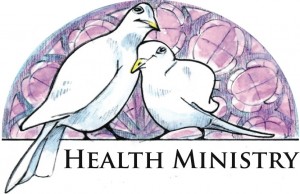Donita Robards, RN, Parish Nurse
Breast cancer is the number two killer of women in the United States. While we don’t know for sure why some women develop breast cancer and others don’t, we know that it is usually easy to detect with traditional exams and is usually treatable. Survival rates are very high when found early, which is why it is so important for every woman to know as much as possible about risk factors, prevention, and treatment.
Age and being a woman are the two biggest risk factors for getting breast cancer; they are also two traits that cannot be changed. The risk of breast cancer increases significantly with age, especially for women who started menstruation at a young age, or began menopause after the age of 55. Increased exposure to the estrogen hormone, from taking oral contraceptives for instance, is also thought to increase risk although this theory has not been proven at this time. Other risk factors include being overweight or gaining over 20 pounds after the age of 18. You can check over here to get help with getting your hormonal treatment done.
How can you prevent breast cancer from happening to you? Unfortunately, there is no guarantee that you will not get breast cancer, regardless of your age, race, or lifestyle. You can however, minimize your risk with a few simple changes: exercising and maintaining your weight, avoiding alcohol, and avoiding oral contraceptives due to the increase in estrogen.
Detection of breast cancer is usually done through a clinical exam and mammogram. Mammograms are the most common way to obtain a diagnosis of breast cancer. A mammogram can be done through a standard or digital machine. Digital mammograms may be a better way to detect breast cancer in some women. Your doctor may also order a MRI with mammography, ultrasound or biopsy. While the recommendations are changing, many physicians still want their patients to have annual mammograms starting at the age of 40.
Self breast exams are the best way to detect cancer early. If you feel any lumps, notice discharge from your nipples, or have any other concerns about your breasts, contact your primary care provider to schedule a clinical exam.
Treatment for breast cancer varies depending on each person’s diagnosis. Treatment is usually surgery, radiation therapy and chemotherapy; however, some women will not need radiation or chemotherapy. Hormone therapy is also used to prevent recurrences once the cancer has been treated through these other measures. Your doctor will be able to help you determine the best course of action to meet your individual needs.
Treatment doesn’t stop after the cancer has been surgically removed, radiated or otherwise treated. The shock of the diagnosis and the trauma of treatment may require you to receive additional emotional and spiritual support. You can call a friend, a social worker, your pastor, or your spouse; it is important to find someone who is empathetic to what you have been through. There are support groups available so you can talk to other survivors who understand how you feel. Find a person you feel comfortable with to express your feelings and your fears. It may be the single most important thing you do to help you fully heal.

